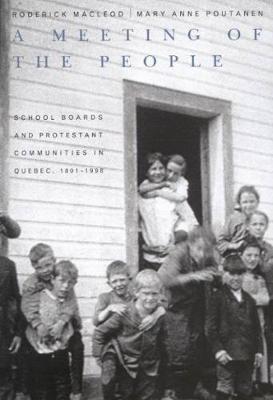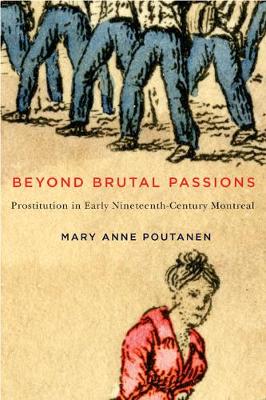Studies on the History of Quebec/Etudes d'histoire du Quebec
2 total works
In A Meeting of the People Roderick MacLeod and Mary Anne Poutanen look at the Protestant public education system and the communities that established, and were served by, its schools, from the origins of public education in 1801 to the dissolution of confessional school boards in 1998. They focus on key issues such as class, ethnicity, religion, gender, health and welfare, patriotism, and the nature of local administration, bringing to life the people who attempted to establish and maintain schools and considering relationships between school trustees, parents, teachers, and the wider public. Their analysis shows that communities recognized the importance of providing schooling, despite what were often bleak circumstances. The authors show that Protestant families often had to make a difficult choice between supporting better educational facilities in a central place far away or encouraging the survival of the local community through maintaining one of its key institutions, the local school.
They explore the ambiguous nature of Protestant education, at times understood as schooling reserved for a religious minority and at others as a liberal approach similar to public schooling across North America. The Protestant community, begun as a British element within a small colony, has developed into a diverse array of people from across the religious spectrum, periodically redefining itself to meet the needs of a changing Quebec society.
They explore the ambiguous nature of Protestant education, at times understood as schooling reserved for a religious minority and at others as a liberal approach similar to public schooling across North America. The Protestant community, begun as a British element within a small colony, has developed into a diverse array of people from across the religious spectrum, periodically redefining itself to meet the needs of a changing Quebec society.
During a time of significant demographic, geographic, and social transition, many women in early nineteenth-century Montreal turned to prostitution and brothel-keeping to feed, clothe, protect, and house themselves and their families. Beyond Brutal Passions is a close study of the women who were accused of marketing sex, their economic and social susceptibilities, and the strategies they employed to resist authority and assert their own agency. Referencing newspapers, parish registers, census returns, coroners' reports, city directories, documents of Catholic and Protestant institutions, police books, and court records, Mary Anne Poutanen reveals how these women confronted limited alternatives and how they fought against established authority in the pursuit of their livelihoods. She details these women's lives not only as prostitutes but also as wives, mothers, sisters, and daughters who reconstructed the bonds of kinship and solidarity. An insightful history of prostitution, Beyond Brutal Passions explores the complicated relationships between women accused of prostitution and the society in which they lived and worked.

